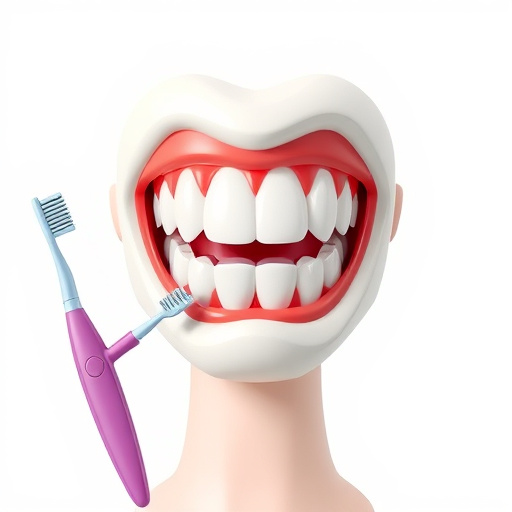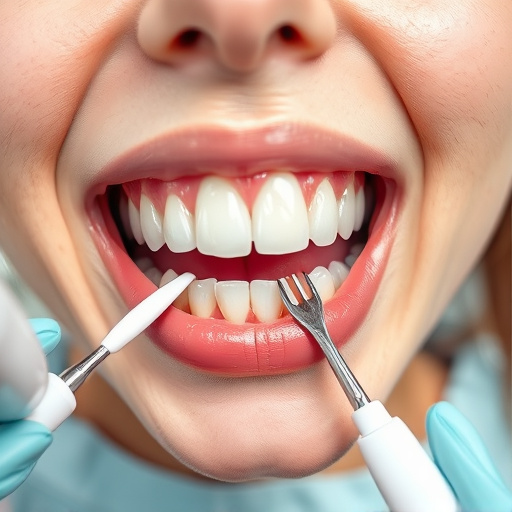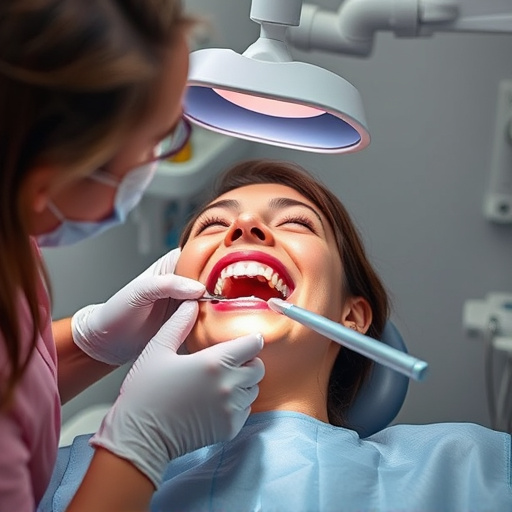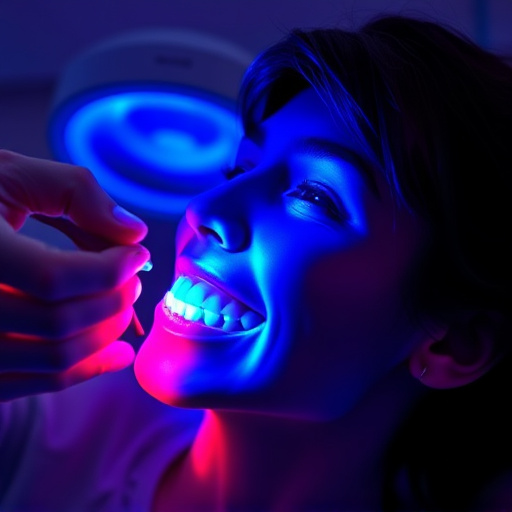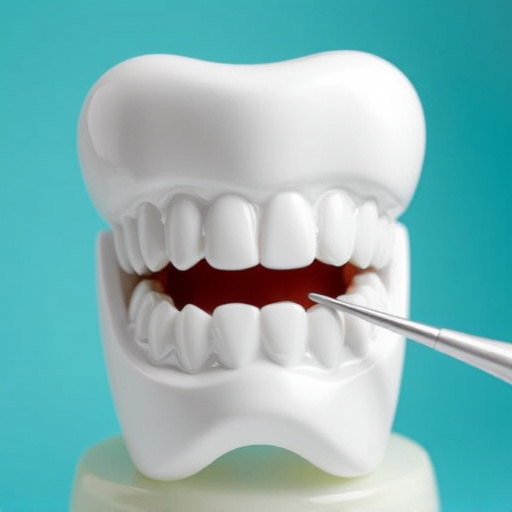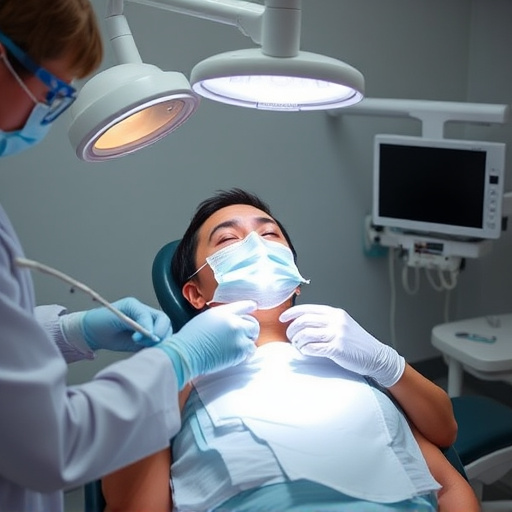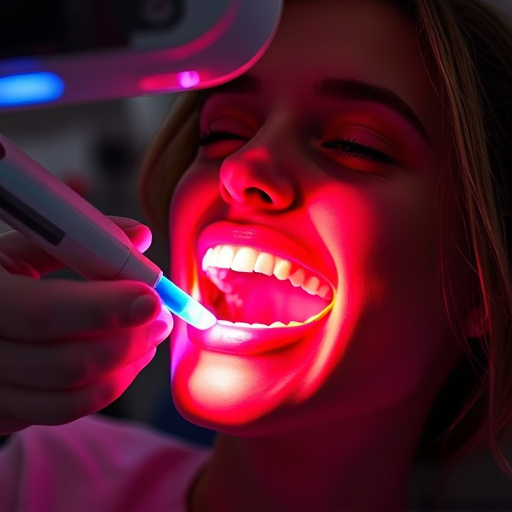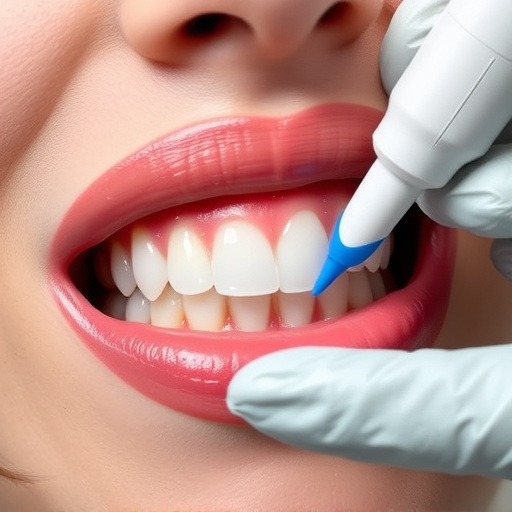Cysts, lesions, and infections affecting the mouth are common regardless of dental hygiene. These can cause discomfort or swelling, appearing as patches in various colors. Oral surgeons perform enucleation, curettage, and other procedures for removal, with wisdom tooth extraction also falling under this category. Regular check-ups and cleaning are crucial for early detection. Post-surgery care involves proper wound care, pain management, and a soft diet while monitoring recovery during follow-up exams.
Cysts or lesions in the mouth can cause discomfort and affect your overall oral health. If left untreated, they may even lead to more serious complications. This article delves into the various oral surgery procedures available for safe and effective removal of these mouth cysts or lesions. From understanding the causes and types to exploring common surgical methods and post-care guidance, we provide a comprehensive guide on how to navigate this process with ease and confidence.
- Understanding Cysts and Lesions in the Mouth
- Common Oral Surgery Procedures for Removal
- Post-Surgery Care and Recovery Tips
Understanding Cysts and Lesions in the Mouth

Cysts and lesions are common oral health issues that can affect anyone, regardless of age or dental hygiene habits. A cyst refers to a small sac filled with fluid that forms within the mouth, often on the gums or around teeth. These non-cancerous growths may remain asymptomatic or cause mild discomfort, swelling, or even pain. Lesions, on the other hand, are areas of abnormal tissue in the mouth that can be painful or painless and may appear as white or red patches on the tongue, gums, or lips. They can be caused by various factors, including bacterial infections, injuries, or autoimmune disorders.
When cysts or lesions become persistent, grow in size, or cause discomfort, it’s time to consider oral surgery procedures for effective removal. Family dentistry practitioners often recommend these interventions to prevent further complications and maintain optimal oral health. In some cases, a simple enucleation (removal) or curettage (scraping out) of the cyst or lesion is sufficient. However, complex lesions might require more advanced procedures, such as dental implants, to restore the affected area’s function and aesthetics. Regular teeth cleaning and check-ups can help in early detection of these issues, ensuring timely treatment and better outcomes.
Common Oral Surgery Procedures for Removal
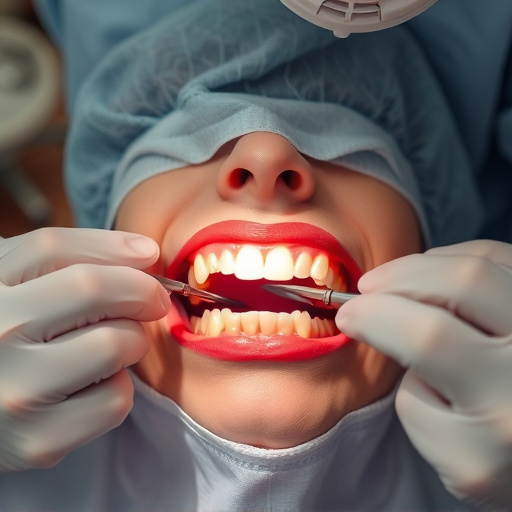
When it comes to oral surgery procedures for cyst or lesion removal, there are several common techniques employed by dental professionals. One of the most frequently performed procedures is wisdom tooth removal, which involves the extraction of third molars that may be impacted or causing discomfort. This is often done under local anesthesia to ensure patient comfort during the process.
Additionally, oral surgery procedures extend to the removal of various types of cysts and lesions within the mouth, such as dentigenic cysts, periapical cysts, and pyogenic infections. Dental cleanings play a crucial role in preventing and managing these conditions, but for more complex cases, surgical intervention is necessary. Children’s dentistry also incorporates oral surgery procedures for addressing similar issues, ensuring proper oral health development from an early age, including the safe removal of baby teeth that may be causing problems.
Post-Surgery Care and Recovery Tips
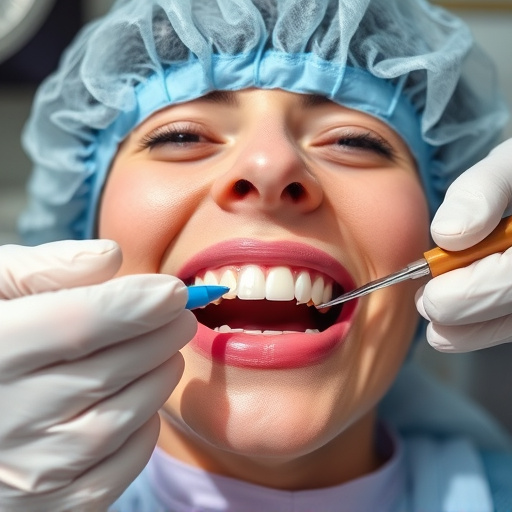
After undergoing an oral surgery procedure for cyst or lesion removal, proper post-surgery care is essential for a smooth recovery. It’s crucial to follow your dentist’s specific instructions regarding wound care and pain management. Typically, this involves keeping the surgical site clean by gently rinsing with salt water several times daily, as recommended by your dental professional. Avoid using straws when drinking, as the suction can dislodge the blood clot forming in the extracted area, leading to complications like dry socket.
During the recovery period, it’s important to maintain a soft diet and avoid hot or spicy foods that could irritate the surgical site. Over-the-counter pain relievers can help manage discomfort, though prescription medication may be provided depending on the procedure’s complexity, including wisdom tooth removal or placement of dental implants. Regular routine oral exams are vital in monitoring your recovery and ensuring no complications arise, especially if you’ve experienced cyst or lesion removal near the jawline or other sensitive areas.
Oral surgery procedures for cyst or lesion removal are effective solutions to address these mouth anomalies. By understanding the nature of cysts and lesions, individuals can take proactive steps towards their health. Common surgical interventions, such as enucleation and excision, offer safe and efficient methods of removal. Proper post-surgery care ensures optimal healing, emphasizing the significance of adhering to medical advice for a successful recovery. Trusting oral surgeons with these procedures guarantees effective outcomes, restoring oral health and peace of mind.






